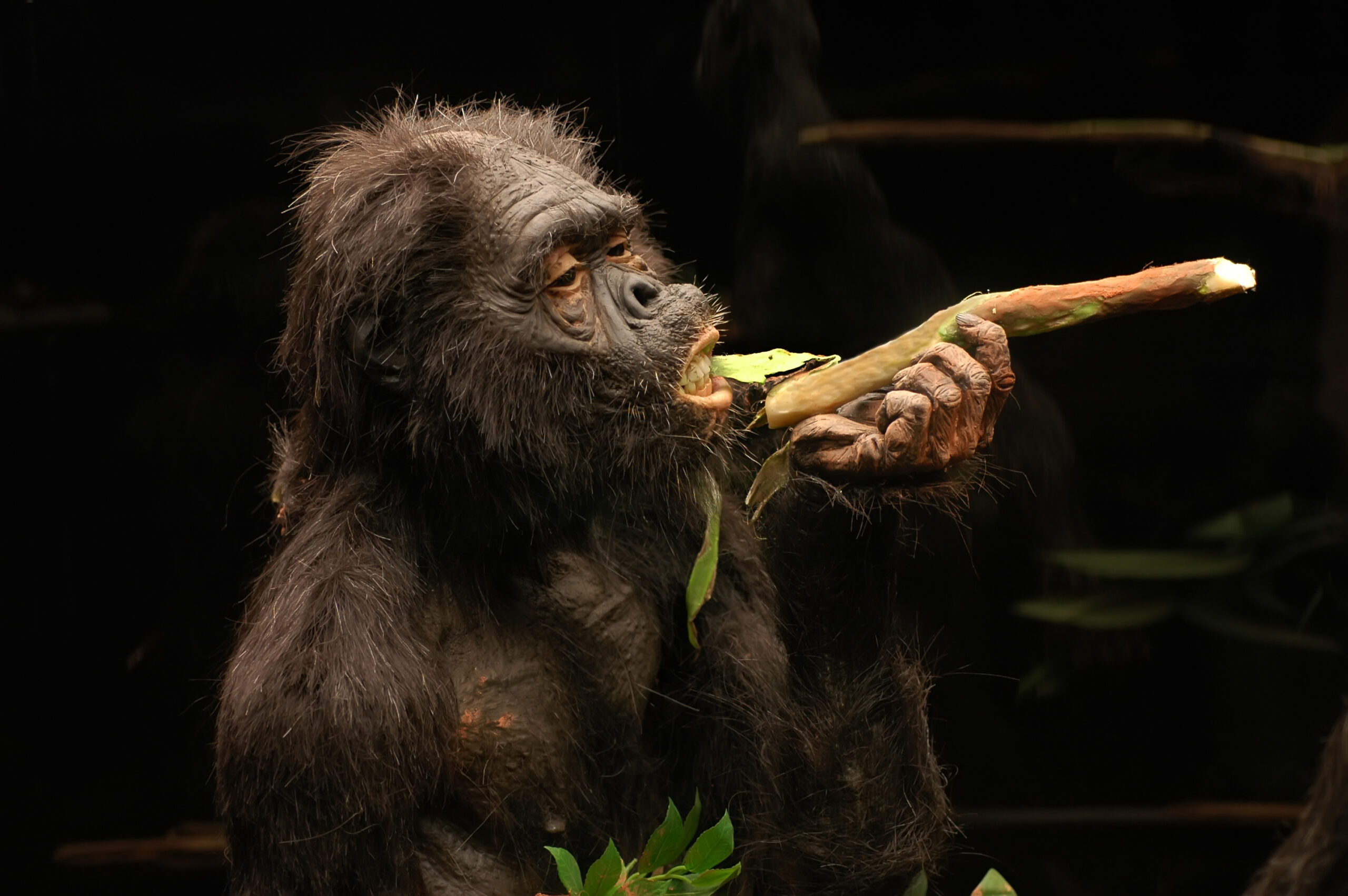A Diet Discovery Reveals That Our Ancestors Were Once Vegetarian

For decades, prehistoric humans have been depicted as dominant hunters, relying on meat for survival and brain development. This idea has shaped both scientific theories and popular beliefs, reinforcing the notion that our ancestors were primarily carnivorous.
However, emerging research challenges this view. Studies of ancient human remains and fossilized teeth suggest that early humans may have relied more on plant-based foods than previously thought. From tubers and seeds to fruits and vegetables, plant-based nutrition played a crucial role in human evolution—reshaping our understanding of prehistoric diets and what they mean for modern health.
Debunking the Myth of the Prehistoric Carnivore
The image of early humans as dominant hunters has long been shaped by archaeological discoveries—stone tools, butchered animal bones, and cave paintings depicting hunts. These findings were often interpreted as proof that meat was the primary driver of human evolution. However, this perspective overlooks a critical flaw: plant-based foods decompose quickly and rarely leave fossil evidence, creating an archaeological bias toward meat consumption.
Recent advancements in scientific techniques, such as isotopic analysis and dental wear studies, are reshaping this narrative. These methods reveal that early humans likely consumed a diverse diet, relying heavily on plant foods like tubers, fruits, seeds, and nuts. The stability and abundance of plant-based foods may have made them a more reliable energy source than the unpredictable nature of hunting.
This growing body of evidence challenges the idea that prehistoric humans were primarily meat-eaters. Instead, their diets were likely shaped by availability and necessity, proving that adaptability—rather than an exclusive reliance on hunting—was key to survival and human development.
Early Andean Populations: A Plant-Based Reality
 Image Source: Shutterstock
Image Source: Shutterstock
New research from the University of Wyoming challenges the long-held belief that prehistoric humans in the Andes Mountains relied primarily on meat. A study analyzing the remains of 24 individuals from burial sites in Peru, dating back 9,000 to 6,500 years, found that nearly 80% of their diet consisted of plant-based foods. This conclusion was reached through isotopic analysis of human bones, which provided chemical signatures of their long-term dietary habits.
Further evidence supports this shift in understanding. Burnt plant remains found at archaeological sites suggest that early Andean populations actively processed and cooked plant foods. Additionally, dental wear patterns—particularly on the upper incisors—indicate frequent consumption of tough, fibrous plant matter, consistent with a diet rich in tubers, similar to modern potatoes. While some evidence of mammal hunting exists, it appears that plants, rather than meat, formed the foundation of their sustenance.
These findings not only reshape assumptions about early South American diets but also provide insight into the broader transition from foraging to agriculture. The nutritional stability offered by plant-based foods may have played a key role in the development of early farming practices, paving the way for agricultural societies in the region.
Australopithecus: A Mostly Vegetarian Ancestor?
 Image Source: Shutterstock
Image Source: Shutterstock
Contrary to the long-held belief that early human ancestors relied heavily on meat, recent discoveries suggest that Australopithecus—one of the earliest hominins—had a diet largely based on plants. Isotopic analysis of fossilized tooth enamel from individuals found in South Africa’s Sterkfontein Caves indicates dietary patterns similar to modern herbivores. Unlike later hominins, such as Neanderthals, there is little evidence of consistent meat consumption.
Rather than actively hunting, Australopithecus likely foraged for nutrient-rich foods such as fruits, leaves, and tubers. These plant-based foods were abundant, easy to access, and required no specialized tools, making them a reliable source of energy. While occasional animal protein from insects or eggs may have supplemented their diet, it was not a primary food source.
This challenges the assumption that meat consumption was the key driver of early human evolution. Instead, it highlights the role of plant-based nutrition in sustaining early hominins, shaping their digestive systems, and influencing dietary adaptations long before regular meat consumption became widespread.
What Early Diets Reveal About Healthy Eating Today
The evolving understanding of early human diets challenges the idea that humans are inherently designed to consume large amounts of meat. If prehistoric populations thrived on a diet largely composed of plant foods, it suggests that optimal nutrition is more about balance and adaptability than rigid dietary labels.
Modern research reinforces the benefits of plant-based eating, including improved heart health, lower inflammation, and a reduced risk of chronic diseases. However, this doesn’t mean that meat has no place in a healthy diet. What matters most is the quality of the foods consumed—whole, nutrient-dense options over highly processed alternatives.
Rather than debating whether humans are “meant” to eat meat, these findings highlight the importance of dietary diversity. Just as early humans adjusted their eating habits based on availability, modern diets should prioritize variety, sustainability, and whole foods to support long-term health.
The Power of Plants: Why a Vegan Diet Works
 Image Source: Pexels
Image Source: Pexels
If our ancestors thrived on plant-based nutrition, what does that mean for us today? Science is catching up to what nature has been showing us all along—plants fuel the body in ways that go beyond just survival. A vegan diet isn’t just about avoiding meat; it’s about embracing the full spectrum of nutrients that plants offer.
- Longevity and Disease Prevention: Study after study links plant-based eating to longer life spans and lower rates of chronic disease. Heart disease, type 2 diabetes, and certain cancers? Their risks drop significantly when diets shift away from processed foods and heavy animal consumption. The fiber, antioxidants, and phytonutrients in plants don’t just nourish the body—they protect it.
- Energy and Gut Health: Ever noticed how sluggish you feel after a heavy, processed meal? That’s because your body is working overtime to break it down. Whole plant foods, on the other hand, provide clean energy—sustained, steady, and efficient. A fiber-rich diet also fuels gut bacteria, strengthening digestion and immunity from the inside out.
- Sustainability for the Future: Beyond personal health, a plant-based lifestyle is a statement. It’s about sustainability, about eating in a way that respects the earth and its resources. Our ancestors adapted to what was available; today, we have the choice to consume in a way that supports both our bodies and the planet.
At the core, it’s not about strict rules—it’s about making choices that align with longevity, vitality, and well-being. A plant-powered diet isn’t just something to try; it’s something that’s been fueling humans for thousands of years. And maybe, just maybe, it’s the key to fueling the future, too.
What Our Ancestors Teach Us About Eating Right
For years, we’ve been sold the same story—our prehistoric ancestors were fearless hunters, spearing mammoths, feasting on raw meat, and fueling their brains with animal protein. Meat made us human, they say. But what if that story is only half the truth?
New research flips the script. It turns out, early humans weren’t just hunters—they were gatherers, foragers, survivalists in the purest form. Tubers, fruits, seeds, and plants weren’t just side dishes; they were the main course. The bones don’t tell the whole story, but their teeth do. The tools they left behind whisper another truth.
So, what does this mean for us today? It means we’ve been asking the wrong question. It’s not about whether humans are “meant” to eat meat or go fully plant-based—it’s about balance, adaptability, and nourishment. Our ancestors didn’t follow diet trends; they ate what was available, what kept them alive, what made them thrive. And maybe that’s the real lesson: Eat whole, eat real, eat what fuels you—not just physically, but mentally, emotionally, sustainably.
Because at the end of the day, it’s not about labels. It’s about longevity. And history is telling us—if we listen closely—that the key to thriving has always been in variety, not extremes.
Featured Image Source: Shutterstock
Loading...






